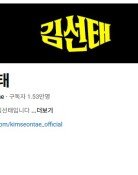Police Blamed for Inviting Violence
Police Blamed for Inviting Violence
Posted June. 30, 2008 03:04,
Since the government posted the new U.S. beef import conditions on its gazette Thursday, some protesters have added an increasingly violent dimension in expressing their opposition against the governments decision. Regarding their growing violence, some Korean media including KBS, MBC, the Hankyoreh and Kyunghyang Shinmun have been criticized for only blaming the police for excessive suppression which, they argue, have brewed violent response of protesters.
As for KBS, most of its news reports on the protest against U.S. beef imports that were aired in its main 9 p.m. daily news program between June 26 and 28 highlighted excessive suppression by the police rather than the violence of some protesters. In one of its reports titled Clash all night, 139 arrested and many injured aired Thursday, KBS broadcasted an interview with a citizen on the scene who said, I believe blocking the protesters by mobilizing police is in itself an act of violence, while putting out a caption that reads police authority equals violence on the screen without any filtration.
Things were not any different for MBC, which also emphasized in their daily News Desk program Thursday that the police should be blamed for the violent response of the protesters by airing excerpts of the interviews with citizens. There is no need for the police to be this harsh. We are just a small group. A riot policeman who lost it began kicking citizens and when other protesters saw the scene, they jumped at the policeman.
Kyunghyang Shinmun directed all the blame to the government and conservative media arguing in its June 27 edition that protesters have become violent because of the excessive suppression by the police and some conservative medias unfair labeling of the protesters as a mob of rioters. Under the top headline Resistance Spreads on its front page, the newspaper regarded the violence of candlelight protests in the same light as citizens resistance to the government, saying, The opposition to the governments decision to resume U.S. beef imports has grown into a nationwide resistance against the government.
While only briefly touching on the violence of protesters, the Hankyoreh also gave more weight to reporting the suppression by the police in its articles such as the one in its June 27 edition, which described that many were injured when the police threw stones and fired water at protesters.
suhchoi@donga.com jjj@donga.com







